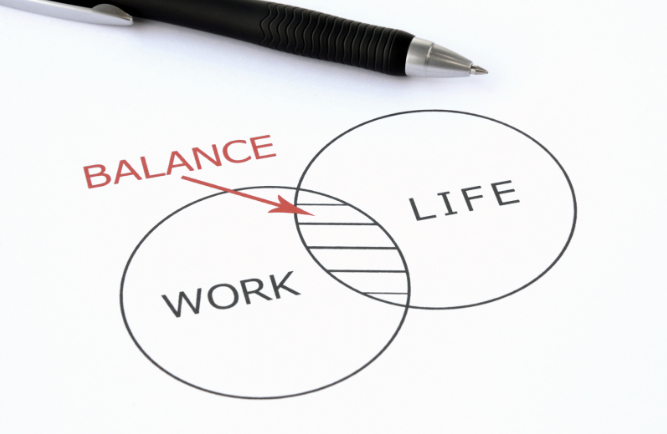
มื้อกลางวันกินอะไรดี? คู่มือ 5-Minute Offix สำหรับชาวออฟฟิศ
“วันนี้กินอะไรดี?” ชาวออฟฟิศส่วนใหญ่เจอเหตุการณ์นี้ทุกวัน ทั้งที่จริงแล้วการเลือกเมนูมื้อกลางวันไม่ควรเป็นความเครียด แต่ความจริงคือ การตัดสินใจเล็ก ๆ ระหว่างวันสามารถดึงพลังงานสมองได้มากอาจทำให้เหนื่อยล้าโดยไม่รู้ตัว หรือที่เรียกว่า decision fatigue บทความนี้เป็นคู่มือแบบอ่านเพียงไม่กี่นาที แต่ช่วยให้คุณตัดสินใจมื้อกลางวันได้เร็วขึ้น และยังรู้สึกดีขึ้นหลังอาหารด้วย ทำไมหลายคนถึง “ไม่รู้จะกินอะไรดี” เวลาพักเที่ยง แม้ร้านอาหารจะอยู่รายรอบออฟฟิศ แต่หลายคนกลับ คิดไม่ออก ว่าจะสั่งอะไร นี่คือเหตุผลหลัก ๆ มีดังนี้: 1. เมนูซ้ำจนเบื่อ กินเมนูเดิมทุกวันจนหมดความรู้สึกตื่นเต้นกับอาหารกลางวัน สมองจะเริ่มปฏิเสธการตัดสินใจ และวนกลับไปที่ความคิด “อะไรก็ได้…แต่กินอะไรดีล่ะ?” 2. พักเที่ยงสั้น รีบกินรีบกลับ เวลาที่จำกัดทำให้ต้องรีบคิดรีบสั่ง ผลลัพธ์คือมักเลือกแบบเดิม 3. เมนูที่หนักเกินไปทำให้ “ง่วงบ่าย” ถ้ากินของทอด น้ำมันเยอะ หรือมื้อใหญ่จนเกินไป ระดับน้ำตาลจะเหวี่ยง ทำให้ช่วงบ่ายไม่สดชื่น 4. ภาวะ decision fatigue หลังจากตัดสินใจเรื่องงานมาทั้งเช้า พอถึงเวลาเที่ยง สมองจะอยากเลือกอะไรที่ง่ายที่สุด แม้จะไม่ดีที่สุด 3 เมนูแนะนำสำหรับวันนี้ ด้านล่างคือ 3 เมนูที่ช่วยให้คุณมีพลังงานช่วงบ่ายแบบไม่หนักท้อง พร้อมคำอธิบายและแคลอรีโดยประมาณ เมนูที่ 1: ข้าวกะเพราไก่ไข่ต้ม + แตงกวา แคลอรี: ~450–520 kcal เมนูสุดคลาสสิกของคนไทย รสเผ็ดหอมพริกกระเทียม ผัดไก่นุ่ม ไข่ต้มยางมะตูม เสิร์ฟคู่กับแตงกวาเย็น ๆ ช่วยลดเลี่ยน ทำไมเหมาะกับช่วงบ่าย? โปรตีนจากไก่ทำให้อิ่มนาน เผ็ดเล็กน้อยช่วยกระตุ้นให้ตื่นตัว ไข่ต้มเพิ่มไขมันดี ทำให้พลังงานค่อย ๆ ปล่อย แตงกวาช่วยให้มื้ออาหารสดชื่น ย่อยง่าย อิ่มพอดี ไม่หนักจนง่วง เมนูที่ 2: ก๋วยเตี๋ยวเรือเนื้อ แคลอรี: ~350–450 kcal น้ำซุปเข้มข้น หอมเครื่อง เนื้อเปื่อยกำลังดี กินคู่กับผักบุ้ง ถั่วงอก หรือพริกป่นหอม ๆ เป็นเมนูที่อิ่มแบบไม่หนักท้องจนเกินไป ทำไมเหมาะกับช่วงบ่าย? น้ำซุปร้อน ๆ ช่วยให้รู้สึกปลุกพลัง โปรตีนจากเนื้อช่วยให้ไม่หิวบ่อย คาร์โบไฮเดรตเบา ๆ ไม่ทำให้ง่วง ย่อยง่ายกว่ามื้อข้าวใหญ่ เหมาะมากในวันที่มีประชุมติด ๆ กัน เพราะกินเสร็จไม่หนักท้อง เมนูที่ 3: ข้าวยำไก่แซ่บ แคลอรี: ~420–500 kcal ไก่ย่างหรือไก่กรอบแบบแคลอรีคุมได้ คลุกกับยำสไตล์แซ่บ ๆ มีผักสด บวกข้าวพอดีจาน ทำให้เป็นมื้ออร่อยแบบสดชื่น ทำไมเหมาะกับช่วงบ่าย? รสเปรี้ยว–เผ็ดช่วยลดอาการง่วงได้ดี มีผักหลากหลายช่วยให้รู้สึกเบาสบาย ข้าวในปริมาณพอดีช่วยไม่ให้พลังงานตก ไก่ให้โปรตีนสูง อิ่มนาน ไม่อยากของหวานตาม เป็นมื้อที่ “สดชื่น + อิ่มกำลังดี” เหมาะมากสำหรับวันที่ต้องใช้สมอง เมนูเหล่านี้ช่วยเพิ่มพลังงานช่วงบ่ายได้อย่างไร ไม่ใช่มื้อหนักจนร่างกายต้องใช้พลังย่อย รสเผ็ดเล็กน้อยช่วยกระตุ้นระบบเผาผลาญ โปรตีนสูงทำให้พลังงานนิ่ง มีผักช่วยให้ไม่รู้สึกแน่นท้อง เหมาะกับคนที่มีประชุมหรือทำงานยาวในช่วงบ่าย 3 ทริคตัดสินใจเมนูมื้อกลางวันให้เร็วขึ้น TIP 1: “1 คนเสนอ 3 เมนู → ช่วยให้ทีมเลือกได้ไวขึ้น” หมุนเวียนกันในทีม แต่ละวันให้ 1 คนมีหน้าที่เสนอ 3 ตัวเลือกก่อนเที่ยง ช่วยลดเวลาการถกเถียงได้เกือบครึ่ง TIP 2: สร้าง “ลิสต์ร้านอร่อยประจำออฟฟิศ” เก็บไว้ใน Google Drive ระบุว่า “อร่อย – ทำเร็ว – ส่งไว” เวลาหิวมากก็เปิดลิสต์ เเละเลือกได้ทันทีโดยไม่ต้องคิดเยอะ TIP 3: “20 นาทีทอง” ห้ามกินที่โต๊ะทำงาน ย้ายไปนั่ง pantry หรือเดินไปซื้อ เพื่อเปลี่ยนบรรยากาศ จะช่วยให้ สมองปลอดโปร่ง ระบบย่อยดีขึ้น เเละพลังกลับมาเต็มที่ พร้อมกลับมาโฟกัสงานช่วงบ่าย ทริคเสริม: ดูแลตัวเองช่วงบ่ายให้สดชื่นกว่าเดิม เดินเล่นเบา ๆ หลังอาหาร 5–10 นาที ดื่มน้ำมากขึ้น โดยเฉพาะถ้ากินเผ็ด เลี่ยงน้ำหวานที่ทำให้ง่วงเร็ว ยืดเหยียดร่างกายสลับกับการลุกเดิน เพียงปรับพฤติกรรมเล็ก ๆ ชีวิตการทำงานของคุณจะดีขึ้นอย่างเห็นได้ชัด สรุป: มื้อกลางวันที่ดี = บ่ายที่ productive การเลือกอาหารกลางวันไม่ใช่เรื่องเล็ก ๆ เพราะมันส่งผลโดยตรงต่อ: พลังงาน สมาธิ อารมณ์ ความสำเร็จในงานช่วงบ่าย มื้อกลางวันที่ดีคือการลงทุนกับพลังงานช่วงบ่ายของคุณ เลือกเมนูที่อิ่มพอดี ไม่ง่วง และช่วยให้ทำงานได้มีประสิทธิภาพ สามเมนูวันนี้ — กะเพราไก่ไข่ดาว, ก๋วยเตี๋ยวเรือเนื้อ, ข้าวยำไก่แซ่บ คือไอเดียที่ตอบโจทย์ทั้งความอร่อยและสุขภาพ อ่านบทความ Well-being เพิ่มเติมได้ที่ Jobcadu เพื่อทำงานอย่างมีพลังในทุกวัน








.png)


